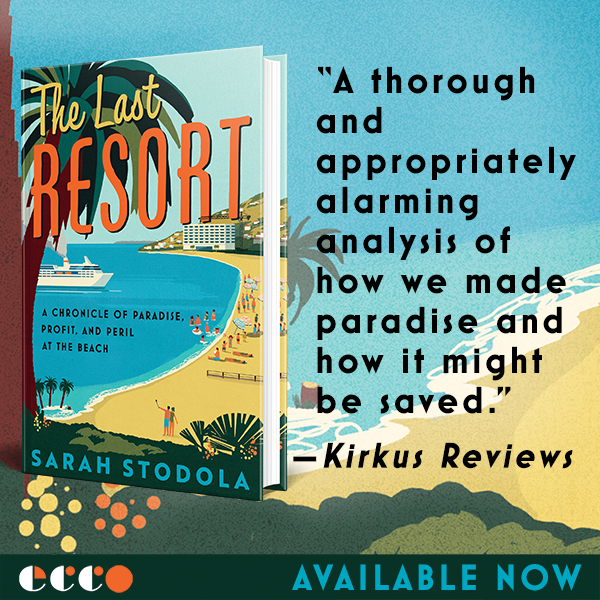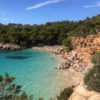I often tell people that I became a writer at least in part because of the untethered lifestyle it offered. I knew that nine-to-five office culture didn’t appeal to me, one of the few things I got right in my early twenties. At the time, most jobs required an employee to show up to his or her place of employment on a daily basis. Writing seemed an exception.
No more. In this fall of 2020, programmers are doing their Silicon Valley jobs from Hawaii; partners in Manhattan law firms are getting their billable hours in from Nantucket. (The writers, meanwhile, given their average incomes, are holed up in their childhood bedrooms.) With the onset of a global pandemic, the majority of white collar workers today, especially those in big urban centers like New York, no long have anywhere to be, so they can be anywhere. And what in March seemed like a thing that might last two months now seems poised to stretch well into 2021. Some companies, notably Twitter, have informed employees that they never have to come back into the office.
The new work-from-home policies dovetail with the fact that, provided you can get to one, beaches in 2020 seem like a pretty great place to pass the pandemic—tailor made for social distancing, for outdoor dining, for great air circulation. Previously, if they were on the clock, workers headed to beach destinations for conferences. If they were off the clock, they were on a classic beach vacation. Now, they are starting to use those same resorts as remote office space.
Some countries that rely on tourism, beach tourism especially, have been working to repackage their products for a new era. The new Work from Bermuda Certificate, for example, allows those approved to stay in Bermuda for up to a year. (The regular tourist visa there has been extended to 180 days from 90, even without applying for the new program.) Bermuda is just one of several tropical islands now offering extended remote-work visas to American citizens, and some are proving so successful that authorities want to extend them indefinitely, even after we all get the coronavirus vaccine.
At a virtual panel at the Skift Global Forum in September, I asked Glenn Jones, the interim CEO of Bermuda’s Tourism Authority, if the certificate program might become permanent. “We will certainly advocate for that, because we think it’s having a positive impact on the economy, and not exhausting resources at the same time,” he said. “It certainly doesn’t have an end date, and anyone who gets a certificate for up to 12 months can apply to renew that certificate.”
The “not exhausting resources” part of his comment touches on one of the industry’s most urgent problems—how to maintain a robust tourism economy while simultaneously getting people to fly less–air travel being the single biggest carbon contributor of almost all island vacations. “Before Covid, we were trying to get New Yorkers to come for a four-day weekend. Now we’re saying, come for four months,” said Jones, “and they’re responding saying, Yeah, I’d like to do that, because I’m not really taking vacation time, I’m working remotely from Bermuda instead of Manhattan.” Longer stays easily translates to fewer flights taken.
Jones said that in late September, the British territory was on pace to get 400 to 500 applicants. “We’re seeing a large share of the total applicant pool be people who are pretty senior in their business organizations. So, people at the C-suite level, managing directors. That’s been really rewarding for us because as those people come to Bermuda, they have a significant impact on the economy generally, and on the tourism economy in particular, because they’ll have spending behaviors that are part resident and part tourist.”
The type of worker taking advantage of Bermuda’s program speaks to another contentious trend in leisure travel. Destinations are now pursuing high-end travelers to the exclusion of all others, the logic being that one traveler spending $5,000 produces far less waste and environmental damage than five travelers spending $1,000 each, or 10 spending $500 each, while maintaining the bottom line. Work-from-paradise trips feed into this trend by being feasible only for the white collar, digitally connected worker. A Chicago plumber can’t work from Aruba. A New York City bartender can’t mix his cocktails from Jamaica.
Bermuda has never been a budget destination, so the current marketing efforts there don’t require a shift to a new audience. But in other destinations, a focus on long-term visitors with jobs elsewhere could accelerate a transition of leisure travel into the specific domain of the privileged. It could even change current affordable digital nomad meccas such as Bali into less accessible places. It would certainly change the dynamics of such destinations, which still bend toward creative professional pursuits.
And if white-collar workers do start working from anywhere, the concept of vacation will have to change. The vacation tradition emerged as a way to pacify workers, to give the masses a couple weeks of time every year with which to relax and recharge for the upcoming months of more work. The beach resort, for most, functions as an escape from, not necessarily a journey to. If the work comes with us to the beach resort, what now is the point of the beach resort? We’ve escaped nothing, except perhaps a few freezing morning commutes. Is it the same as the workplace, but warmer? And if we are working from the beach resort, where do we go when paid vacation time rolls around?
Even seven months into this pandemic, it remains too soon to know how, or even if, it will change travel permanently. But one safe bet would be to assume that the line between work and leisure will blur further. If the remote work trend does take hold permanently, expect a more corporate scene in leisure destinations. Paris in the 1920s it is not. Writers will be outnumbered by managing directors. I could have gone into finance.







